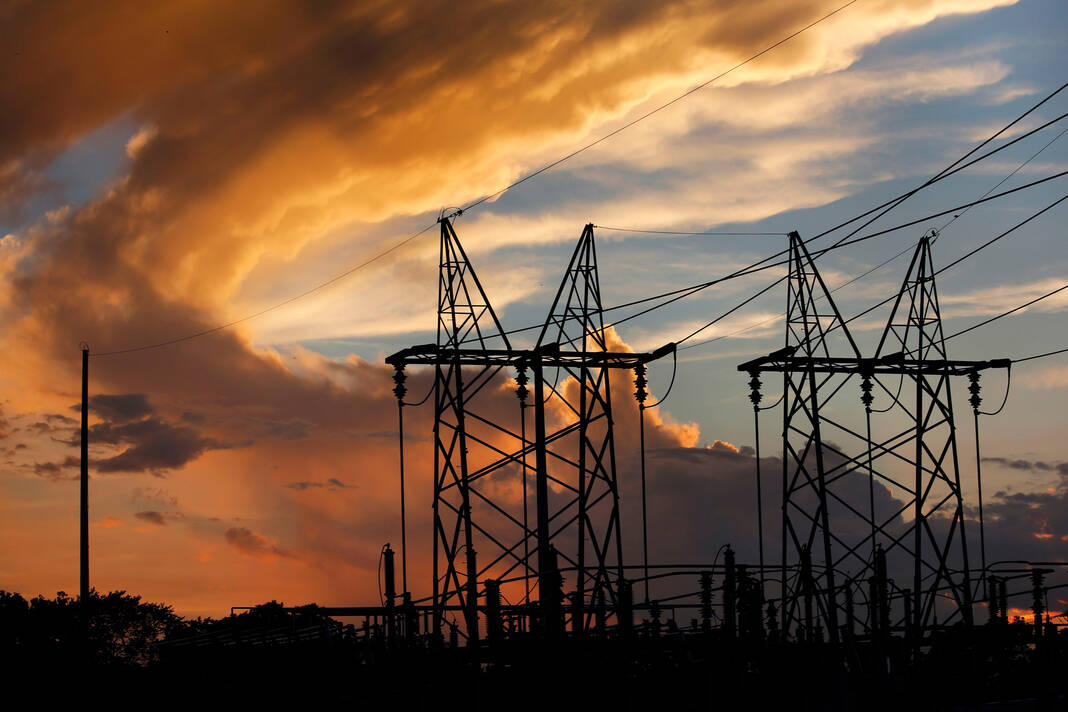By Philip Jankowski | Dallas Morning News
AUSTIN — The independent authority for Texas’ power grid operator ERCOT has a novel idea for how state officials should tackle restructuring Texas’ electricity market in the wake of 2021′s deadly winter storm: do nothing.
Numerous proposals are before the Public Utility Commission to overhaul how electricity is bought and sold on Texas’ power grid. The commission, which regulates the Electric Reliability Council of Texas and is made up of board members appointed by Gov. Greg Abbott, has proposed a unique market structure that would pay a premium for electricity produced by natural gas.
That proposal has faced pushback for relying on an untested structure. But Republican state lawmakers appear united in providing some sort of incentives toward instantly available dispatchable energy, which in Texas is code for natural gas.
At stake is the resiliency of the state’s electric grid, which was pushed to the brink of collapse in the February 2021 winter storm that led to widespread blackouts and killed more than 200 Texans. The chosen market structure also will trickle down to most Texans’ electric bills, likely increasing their monthly charge for keeping the lights on.
Texas currently operates an “energy-only market,” a deregulated sector that allows power producers to sell electricity on a competitive market and lets most consumers in Texas choose a power plan to their liking.
Potomac Economics, ERCOT’s independent market monitor, wrote in a comment submitted to the PUC that changes already made to Texas’ electricity market increased energy prices enough to encourage the construction of new natural gas power plants.
“We continue to believe in the effectiveness of the energy-only market,” the firm wrote.
The most substantial change was in December 2021, when the PUC changed a market demand curve that lowered the energy price cap from $9,000 per megawatt hour to $5,000 per megawatt hour, but also made it easier to reach the lucrative price cap.
Potomac estimates that those changes added $1.7 billion in revenue to Texas’ real-time electricity market in 2022 through Nov. 30. Of that revenue, 61% went to natural gas power producers, outpacing the sector’s total contribution to Texas’ energy capacity.
“We are confident that investment in dispatchable gas resources will continue and possibly accelerate,” Potomac wrote.
The firm did recommend creating an “uncertainty product” that would pay generators to begin producing electricity when reserve power supply becomes scarce.
PERFORMANCE CREDITS
The PUC has proposed a new market form called the performance credit mechanism, which would reward power producers that generate electricity during peak demand. The PUC estimates that it would cost Texans about $460 million in increased energy bills to enact.
The commission has faced significant pushback on the proposal. All nine members of the Senate Business and Commerce Committee signed a letter indicating their suspicions of the proposal and its lack of any firm safeguard related to system reliability.
The Office of Public Utility Counsel, the state’s consumer advocate, noted in its official comment on the performance credit proposal that the market design has “no assurances” that it “will result in the building of any new generation assets that may reduce overall energy prices and result in fewer scarcity pricing events currently enjoyed by generators in the current market.”
No estimates have been made calculating the actual impact the market redesign would have on people’s electric bills. But consumers have seen their electric bills soar in the past year, driven by historic inflation levels and surges in natural gas prices.
But PUC Chairman Peter Lake has been frank that any efforts to improve the reliability of Texas’ power grid will cost money, and that cost will trickle down to business owners and residents.
The PUC is expected to take action on the market redesign in January as lawmakers return to Austin for the 2023 legislative session. But Lake has told lawmakers that whatever market design they approve will not be immediately implemented. Instead, their action will only be a recommendation.
That means the Legislature will be in the driver’s seat.
LEGISLATIVE PRIORITIES
Lt. Gov. Dan Patrick has already signaled that incentivizing the construction of new natural gas fueled power plants is a key goal for the Senate in the upcoming legislative session. At a news conference announcing his legislative priorities last month, Patrick said he would force the Legislature to stay in session until laws are passed that will encourage new natural gas power plants.
“Whether it is incentivizing them, whether it’s building them, whatever the plan is, I personally cannot see myself leaving this building knowing that another [winter storm] Uri can happen,” he said.
State Sen. Charles Schwertner, the Georgetown Republican who led efforts to overhaul the power grid after the 2021 winter storm, said he has not made up his mind on what market structure he prefers. But Schwertner said he disagrees with the independent market monitor’s suggestion that Texas’ electricity market be largely left alone.
Schwertner said he is “resource agnostic” when it comes to what kind of weather-independent power generation is added to Texas’ power grid, but recognized that in all likelihood, it would be natural gas fueled.
“We are the Saudi Arabia of natural gas, with a very vast and significant pipeline structure here in Texas,” he said. “It makes sense when you look at what we have an abundance of to fill the void.”




